Around 70% of the world's oceans could be suffocating from a lack of oxygen as a result of climate change by 2080
By Lokmat English Desk | Published: February 2, 2022 05:04 PM2022-02-02T17:04:36+5:302022-02-02T17:04:36+5:30

According to a new study report, by 2080, all oceans around the world will experience 70 percent oxygen deprivation.
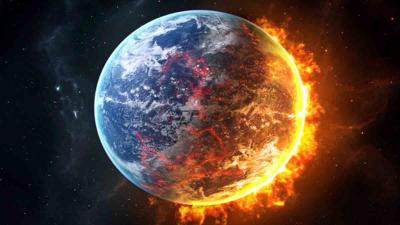
Oceans carry dissolved oxygen as a gas, and just like land animals, aquatic animals need that oxygen to breathe. But as the oceans warm due to climate change, their water can hold less oxygen. Scientists have been tracking the oceans' steady decline in oxygen for years, but the new study provides new, pressing reasons to be concerned sooner rather than later.
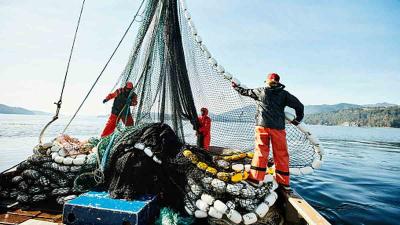
The new study is the first to use climate models to predict how and when deoxygenation, which is the reduction of dissolved oxygen content in water, will occur throughout the world's oceans outside its natural variability.
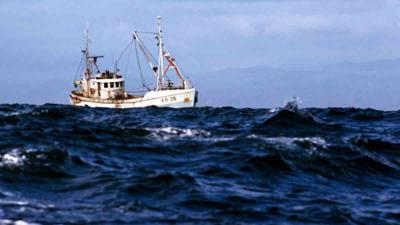
It finds that significant, potentially irreversible deoxygenation of the ocean's middle depths that support much of the world's fished species began occurring in 2021, likely affecting fisheries worldwide. The new models predict that deoxygenation is expected to begin affecting all zones of the ocean by 2080.
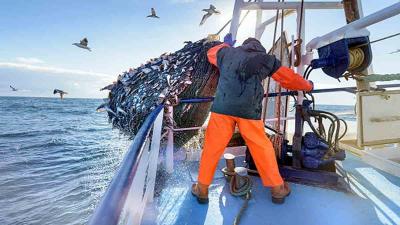
The results were published in the AGU journal Geophysical Research Letters, which publishes high-impact, short-format reports with immediate implications spanning all Earth and space sciences.
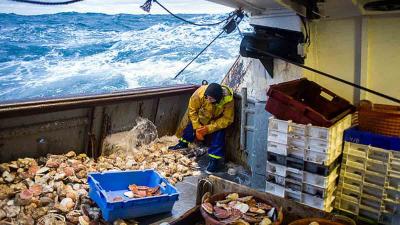
The ocean's middle depths (from about 200 to 1,000 meters deep), called mesopelagic zones, will be the first zones to lose significant amounts of oxygen due to climate change, the new study finds.
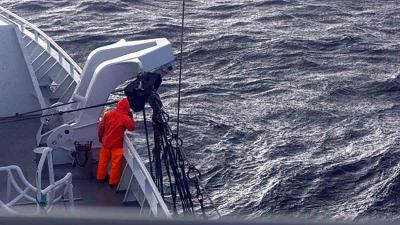
Globally, the mesopelagic zone is home to many of the world's commercially fished species, making the new finding a potential harbinger of economic hardship, seafood shortages and environmental disruption.
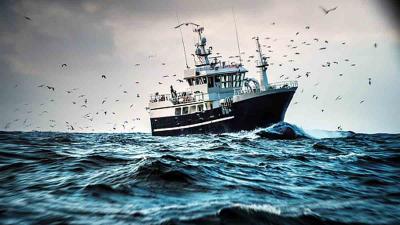
Rising temperatures lead to warmer waters that can hold less dissolved oxygen, which creates less circulation between the ocean's layers.

The middle layer of the ocean is particularly vulnerable to deoxygenation because it is not enriched with oxygen by the atmosphere and photosynthesis like the top layer, and the most decomposition of algae -- a process that consumes oxygen -- occurs in this layer.
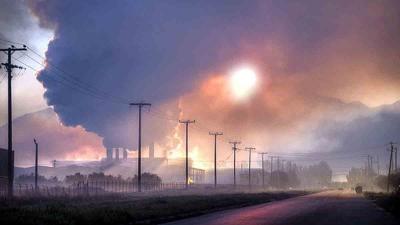
"This zone is actually very important to us because a lot of commercial fish live in this zone," says Yuntao Zhou, an oceanographer at Shanghai Jiao Tong University and lead study author. "Deoxygenation affects other marine resources as well, but fisheries [are] maybe most related to our daily life."
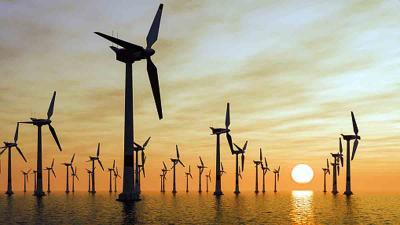
The new findings are deeply concerning and adds to the urgency to engage meaningfully in mitigating climate change, says Matthew Long, an oceanographer at NCAR who was not involved in the study.
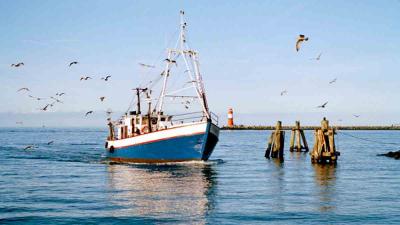
"Humanity is currently changing the metabolic state of the largest ecosystem on the planet, with really unknown consequences for marine ecosystems," he said. "That may manifest in significant impacts on the ocean's ability to sustain important fisheries."The researchers also found that oceans closer to the poles, like the west and north Pacific and the southern oceans, are particularly vulnerable to deoxygenation. They're not yet sure why, although accelerated warming could be the culprit. Areas in the tropics known for having low levels of dissolved oxygen, called oxygen minimum zones, also seem to be spreading, according to Zhou.























